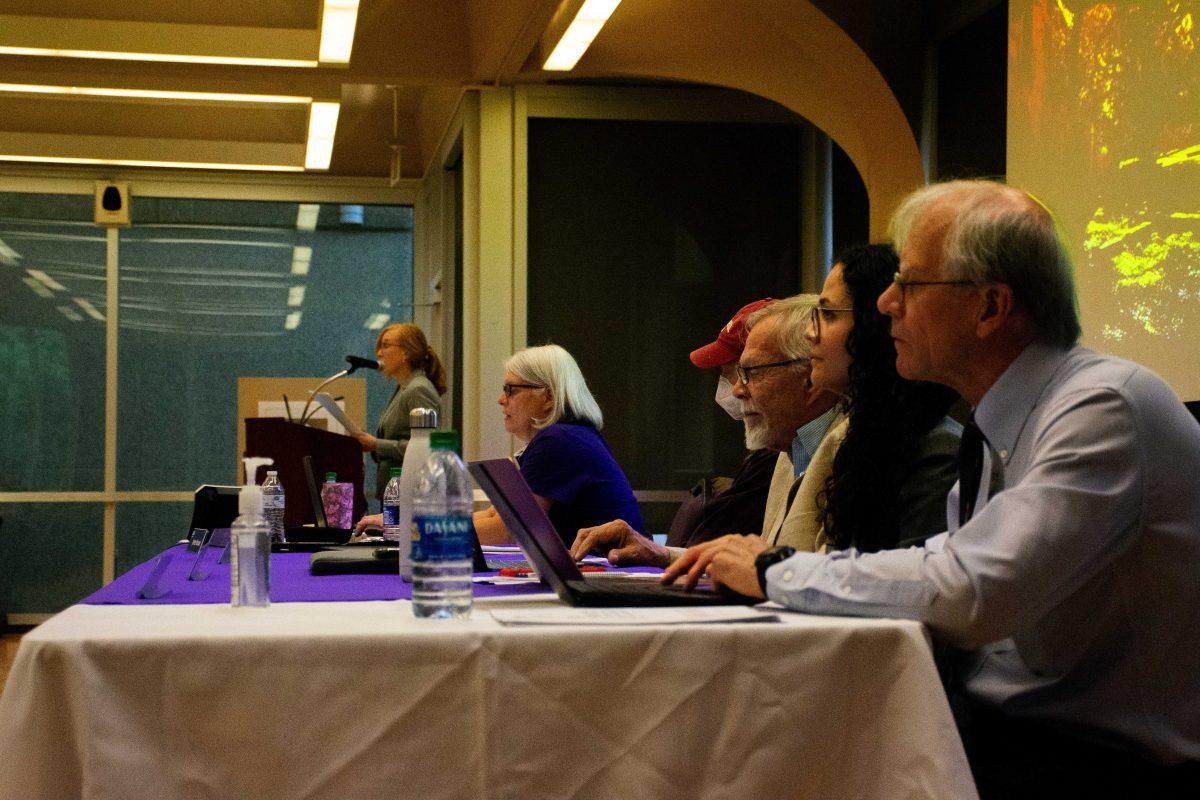After a contentious year in the LSU Faculty Senate, new Senate leaders were elected on Monday at the body’s last meeting of the semester.
President Mandi Lopez, who decided not to seek re-election, will be replaced by Inessa Bazayev, a music professor and at-large member of the Faculty Senate Executive Committee. Bazayev beat her sole opponent, current Vice President Joan King, on a 37-15 vote.
King will be replaced as vice president by Daniel Tirone, a political science professor. Tirone beat out two other candidates, Eddie Gibbons and Roy Heidelberg, on a 37-14-2 vote.
The new secretary of the Senate, Meredith Veldman, beat one other candidate, Kerry Dooley, an engineering professor, to replace Marwa Hassan, who did not run for any officer position.
Bazayev, Tirone and Veldman have made waves in the Faculty Senate for their opposition to the current administration. The three have co-sponsored several resolutions together and have at times been openly critical of Lopez’s practices as president.
A group of senators, including Tirone and Veldman, brought a resolution calling for Lopez, King and past President Kenneth McMillin to resign. This was following the revelation that Lopes, King, and McMillin knew about the LSU Board of Supervisors’ plan to abolish the Faculty Council ahead of time and did not alert the rest of the Senate. Bazayev publicly supported the resolution.
“We were told by the president that there’s nothing we could do,” Bazayev said at the October Faculty Senate meeting.
Bazayev said that her priority as president will be to “build our Senate into a formidable body that advocates for faculty” by working with faculty throughout the LSU system and following up on resolutions that the body passes.
As a senator, Tirone has been outspoken, often found leading the conversation at Faculty Senate meetings. On multiple occasions, Tirone has exchanged terse words with Senate leadership and even other senators.
Both Bazayev and Tirone criticized Faculty Senate leaders when the body illegally kicked out a Reveille reporter from a meeting without following proper protocol in November.
In March, when the body underwent open meetings law training, Tirone simultaneously defended the body’s need to comply with open meetings law while also advocating for the body to seek an exemption.
“It is not a choice we can make whether to abide by them or not,” Tirone said of the open meetings law, later arguing that the law was not made with bodies like the Faculty Senate in mind.
While Veldman has been less outspoken than Bazayev and Tirone, she has made her mark in the Senate in her own way.
Veldman is known for her attention to detail. On many occasions, Veldman has advocated for administrative changes to various aspects of Faculty Senate business. On some occasions, that has meant lobbying for changes to the minutes to make them more accurate or pointing out that agenda items have been skipped.
Veldman also sponsored a resolution to amend the Faculty Senate bylaws to make meetings operate more efficiently. The resolution, which sought to rearrange the agenda structure so that guest speakers appear after business is conducted, passed in February.
The body also elected new at-large members of the Faculty Senate Executive Committee. Jin-Woo Choi, an engineering professor, and Parampreet Singh, a physics professor, were elected over James Madden, a math professor, and Dooley.
Although more reserved than the rest of the group, both Choi and Singh have joined Bazayev, Tirone and Veldman on various resolutions over the past year.





